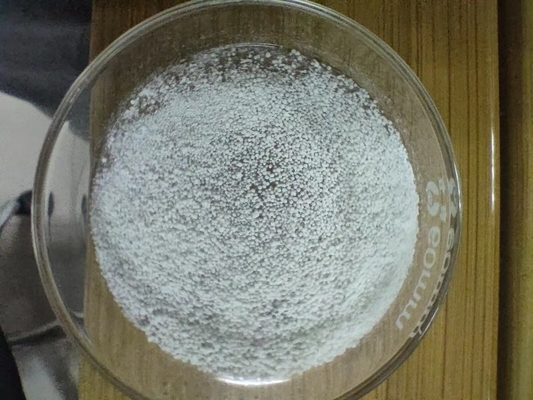Short And Medium Chain Fatty Acids And Cinnamaldehyde Replacing AGP For Swine
Product Details:
| Place of Origin: | China |
| Brand Name: | DING SU |
| Certification: | ISO, GMP+ |
| Model Number: | AGP-ALT 30 |
Payment & Shipping Terms:
| Minimum Order Quantity: | 1000kg |
|---|---|
| Price: | USD 8.0/KG |
| Packaging Details: | 25kg/carton |
| Payment Terms: | L/C,T/T,D/P,D/A |
| Supply Ability: | 1000MT/year |
|
Detail Information |
|||
| Colour: | White | Form: | Granule |
|---|---|---|---|
| Active Ingredient: | Sodium Butyrate, GML, Cinnamaldehyde | Type: | Feed Additive |
| Function: | Anti-bacteria, Anti-virus,grow Promotion | Solubility: | Water Soluble |
| PH: | Acidic | ||
| Highlight: | Swine Chain Fatty Acids,Antibacterial Chain Fatty Acids,Sodium Butyrate Chain Fatty Acids |
||
Product Description
Short And Medium Chain Fatty Acids And Cinnamaldehyde Replacing AGP For Swine
Functional Benefits of Sodium Butyrate in Animal Feed
1. Promotes Gut Health and Intestinal Integrity
Sodium butyrate serves as the primary energy source for colonocytes, the epithelial cells lining the large intestine. By nourishing these cells, it helps maintain tight junctions, reduces gut permeability (commonly known as "leaky gut"), and reinforces the intestinal mucosal barrier. This supports optimal nutrient absorption and protects animals from gastrointestinal infections and disorders.
2. Antimicrobial and Anti-inflammatory Properties
Research shows that sodium butyrate exhibits strong antibacterial activity against common livestock pathogens such as Salmonella, Escherichia coli (E. coli), and Clostridium perfringens. It also helps reduce intestinal inflammation by regulating cytokine production. This dual action strengthens the animal’s ability to cope with environmental and pathogenic stress, making it a natural alternative to antibiotics.
3. Enhances Immune Function in Livestock
Sodium butyrate supports the immune system by modulating the activity of key immune cells, including macrophages and T-lymphocytes. It also promotes the expression of antimicrobial peptides, boosting the animal's natural defense mechanisms and reducing reliance on synthetic medications.
4. Improves Feed Efficiency and Growth Performance
By promoting intestinal health and reducing the risk of subclinical infections, sodium butyrate contributes to better feed conversion ratio (FCR) and average daily gain (ADG). This makes it particularly valuable in intensive poultry and swine production systems, where performance and profitability depend on gut health and efficient nutrient utilization.
Key Functions of Cinnamaldehyde in Animal Nutrition
Cinnamaldehyde, a natural compound extracted from cinnamon bark, is increasingly used as a plant-based feed additive for its antimicrobial, anti-inflammatory, and growth-promoting properties. Here’s how cinnamaldehyde supports animal health and performance:
1. Broad-Spectrum Antimicrobial Activity
Mechanism: Cinnamaldehyde disrupts the cell membranes of bacteria and inhibits essential bacterial enzymes.
2. Anti-inflammatory and Antioxidant Properties
Cinnamaldehyde reduces inflammation by inhibiting the expression of pro-inflammatory cytokines such as TNF-α and IL-6. As a natural antioxidant, it neutralizes free radicals, minimizing oxidative stress in animals, especially under heat stress or immunological challenge.
3. Natural Growth Promoter in Feed Formulations
Used as an alternative to antibiotic growth promoters (AGPs), cinnamaldehyde improves gut health, enhances digestive enzyme activity, and supports animal growth performance—particularly in poultry and swine diets. Its natural origin makes it ideal for antibiotic-free production systems.
4. Supports Digestive Function and Nutrient Utilization
Cinnamaldehyde stimulates the secretion of saliva and digestive enzymes, enhancing feed breakdown and nutrient absorption. It also helps maintain a healthy gut microbiota balance, which is essential for maximizing feed efficiency and improving the animal's overall well-being.
Ingredient: Sodium butyrate ; α-Monolaurin,Cinnamaldehyde; Carrier: maltodextrin
Concentration: 30% Minimum (sodium butyrate), 15% Minimum (α-Monolaurin), Cinnamaldehyde 2%
Molecular Formula: C4H7NaO2 (Sodium butyrate), C15H30O4(α-monolaurin), C9H8O(Cinnamaldehyde)
Molecular weight: 110.09 (Sodium butyrate), 274.21 (α-monolaurin), 132.16(Cinnamaldehyde)
Description: wihte to yellow particle
Main function of butyrate
(1) Growth promotion.
(2) strong antibacterial effect.
Main function of Cinnamaldehyde
(1) anti-microorganism
(2) increase feed intake
Main properties of GML
α-Monolaurin and lauric acid Rupture the cell membrane or virus envelope to kill bacterium and enveloped viruses, and prevent from epidemic disease.
pH value
| Dilution (fold) | AGP-ALT |
| 0 | 2.8 |
| 100 | 3.6 |
| 300 | 3.9 |
| 400 | 4.2 |
| 500 | 4.4 |
| 1000 | 5.3 |
| 2000 | 5.7 |
Synergistic effect of butyrate and GML
![]()
Physical and Chemical Characteristics are as follows:
| Items | Standard |
| Sodium butyrate | ≥30.0% |
| α-monolaurin | ≥15.0% |
| Cinnamaldehyde | ≥2.0% |
| Moisture | ≤4.0% |
| pH | ≤3.5 |
| Lead (mg/kg) | ≤10mg/kg |
| Arsenic (mg/kg) | ≤2mg/kg |
| ﹡﹡﹡﹡﹡﹡﹡﹡﹡ | ﹡﹡﹡﹡﹡﹡﹡﹡﹡ |
Usage: mixing in feed evenly. The dosage of supplement in feed is as
follows(kg/mt):
| Piglets | Growing and fattening pigs | Breeding pigs | Broiler starter | Broiler grower or finisher | Layers | Breeding hens |
| 2.0-3.0 | 1.0-2.0 | 1.5-3.0 | 1.0-1.5 | 0.5-1.0 | 0.5-1.5 | 1.0-2.0 |
Storage: Sealed Tightly. Avoid Exposure To Moisture.
Expiry: One years from the date of production.
SINGAO is chinese leading manufacturer of Sodium butyrate, Calcium butyrate, tributyrin (SCFA )and microencapsulated fat powder.
![]()
![]()
![]()





